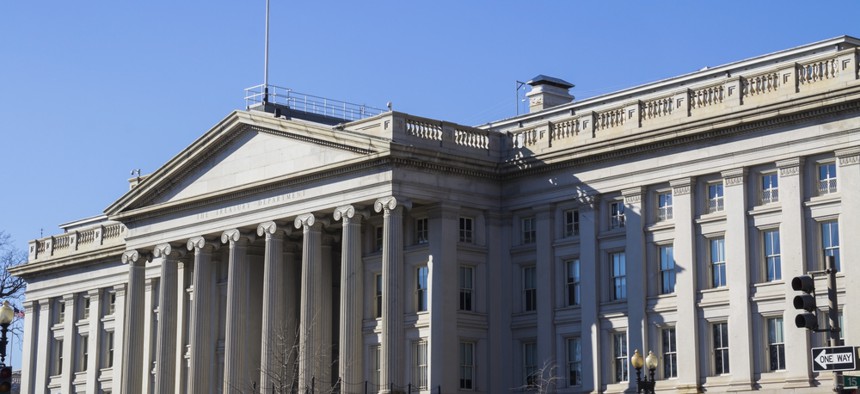
AbbVie 's CEO blamed the US Treasury Department. mdgn/Shutterstock.com
The US Government Actually Stood Up To a Would-be Corporate Tax Dodger
The Obama administration tightened the rules for companies seeking to complete tax inversion moves.
This summer, Richard Gonzalez, the CEO of US pharmaceutical maker AbbVie, said of his company’s plan to merge with UK-based Shire: “We wouldn’t be doing it just for the tax impact.”
Today, after scuttling the deal, the CEO blamed the US Treasury Department, which “re-interpreted longstanding tax principles in a uniquely selective manner designed specifically to destroy the financial benefits of these types of transactions.”
So perhaps Gonzalez wasn’t exactly telling the truth before about the reasoning behind its merger, but that’s alright: Most of us can follow the money. The deal was a tax inversion, a merger that would bring the new company’s headquarters out of the US—and out of reach of many US taxes. Thanks to the comparatively high US tax rate and a corporate tax code that privileges overseas cash and profit shifting, lots of companies—especially pharmaceutical firms, which have lots of intellectual property that can be that can be steered to low-tax jurisdictions—have been trying to take advantage of the structure.
But many US politicians are unhappy about the development, which erodes the American tax base. Last month, after Burger King found a tax-inversion opportunity that would move the fast-food chain’s headquarters to Canada, the Obama administration tightened the rules for companies seeking to complete these transactions. It wasn’t clear whether this would mean merely tinkering around the edges or having enough impact to prevent the deals from going through. AbbVie’s decision to cancel its merger shows that the provisions do have some teeth; it remains to be seen if the Burger King deal or other high-profile inversions, like those planned by Medtronic and Chiquita, will be affected.
Gonzalez, who thought the tax impact of his merger was of secondary importance just months ago, is now agitating for full-scale corporate tax reform. With the Republican party expecting to control the US legislature after next month’s election, it’s likely that reform proposals intended to ease companies’ efforts to shift earnings overseas will gain traction, but they will find it hard to pass them while Barack Obama is still president. A long-awaited tax reform plan will likely keep waiting, at least until the results of the 2016 elections are in, barring an unexpected willingness to compromise by either party.
(Image via mdgn/Shutterstock.com)
NEXT STORY: The Ex-Nazis Collecting Social Security







